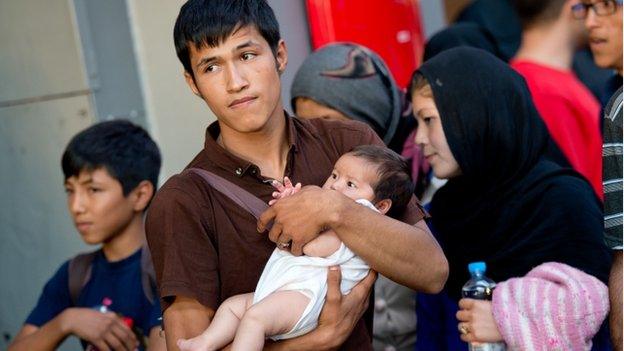German MP Patzelt opens home to two Eritrean migrants
- Published
Martin Patzelt: "To house someone... to ensure that refugees have a face and a name... that reduces polarisation, enmity and fear"
A German conservative MP, Martin Patzelt, has taken two Eritrean refugees into his home and is helping the young men find jobs locally.
Mr Patzelt, of Chancellor Angela Merkel's Christian Democrats (CDU), lives near Frankfurt (Oder) in eastern Germany. The Eritreans have been staying with him for a month.
Such initiatives help to "get rid of the polarisation and hostility" towards migrants, he told German ARD TV, external.
Many Eritreans have fled to Europe.
The country in the Horn of Africa has an authoritarian government which forces citizens into military service - often for many years and in deplorable conditions.
Generally Eritreans and Syrians are granted refugee status when they reach Germany, allowing them to stay there.
But Germany is gripped by an intense debate over migrants, as the numbers have soared this year - largely because of the boatloads crossing the Mediterranean. That is putting local authorities under pressure.
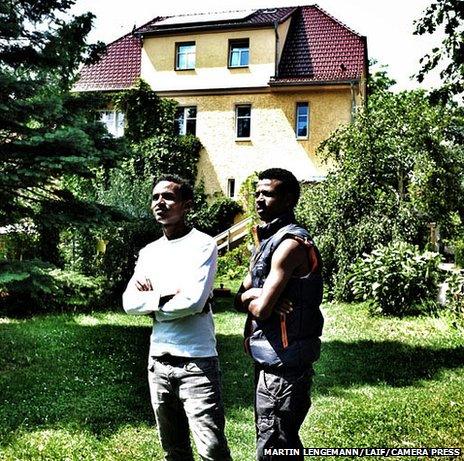
The migrants - Haben (left) and Awet - are pictured in Mr Patzelt's garden
Mr Patzelt has a large house in Briesen, a village near Frankfurt, and the two Eritreans - Haben, 19, and Awet, 24 - are sharing the top floor with one of his grown-up sons, Germany's Die Welt daily , externalreports.
He met the pair at his local Catholic church and invited them back. Later he offered to put them up at his home.
They communicate in broken English, but the Eritreans are taking German lessons, reports say. One now has some temporary work in the local administration, and the other in a supermarket, thanks to Mr Patzelt's help.
Local acceptance
Speaking to the BBC, Mr Patzelt said many people had told him they felt very sympathetic and admired his commitment.
He received a huge pile of birthday cards this year, including from people who had never sent one to him before, he said.
But as for reaction from fellow CDU politicians, he said only that "it is a process". He said his motivation was political - not religious - from the start. Hostility towards the influx of refugees could only be solved by engaging ordinary German citizens, he told the BBC.
The two Eritreans are made to feel at home in Briesen, he said, and people wave when they walk past.
"Sponsorships, to house someone, company, to welcome someone - these small bridges help to give refugees a face and a name, so that they emerge from the anonymous mass of asylum seekers," Mr Patzelt told ARD TV earlier.
"If more people did that... we'd be on a good path."
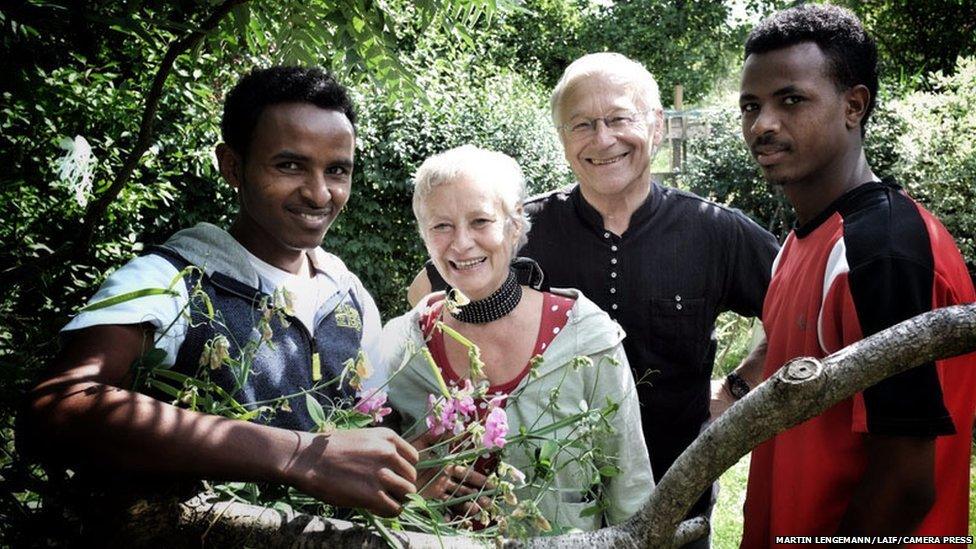
Martin Patzelt and his wife met the two Eritreans in church
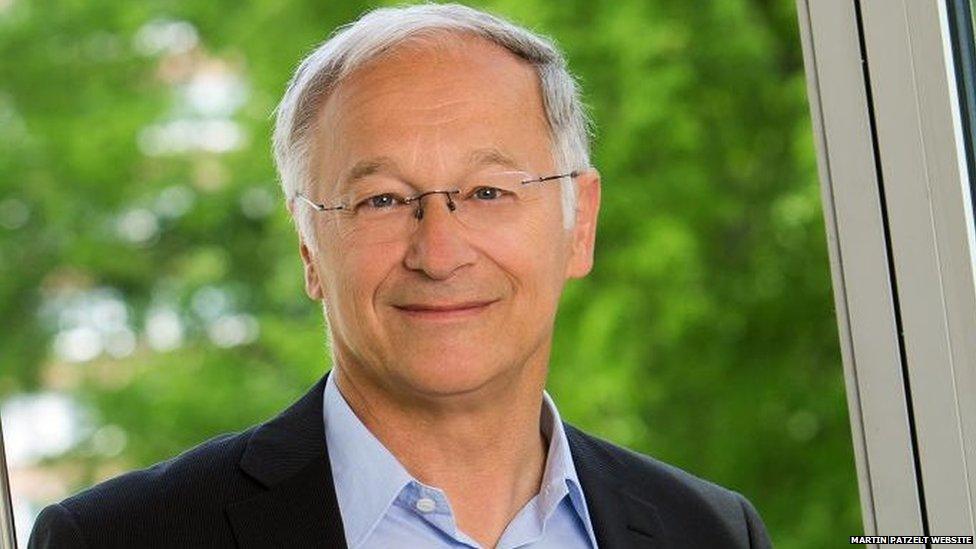
Martin Patzelt says Germans should give shelter to people fleeing from war
But local businesses were generally sceptical when he approached them seeking job placements for the Eritrean pair, ARD reported. There were concerns about their language difficulties and ability to adapt to the workplace.
Mr Patzelt told Die Welt that for each refugee he was receiving €100 a month (£70; $110) from the German refugee welfare authority, to cover everyday expenses.
It would cost the state about €2,000 a month to house each refugee in a migrant hostel.
Haben and Awet get a monthly state allowance of €326 each to cover their welfare, including new clothes.
Last year Mr Patzelt wrote an open letter to Green politician Hans-Christian Stroebele, suggesting that more citizens accommodate refugees in their homes, as a better option than migrant hostels. That letter drew some anonymous death threats.
"Many thought it was a cheek even to think about such a thing as accommodating a refugee," he said.
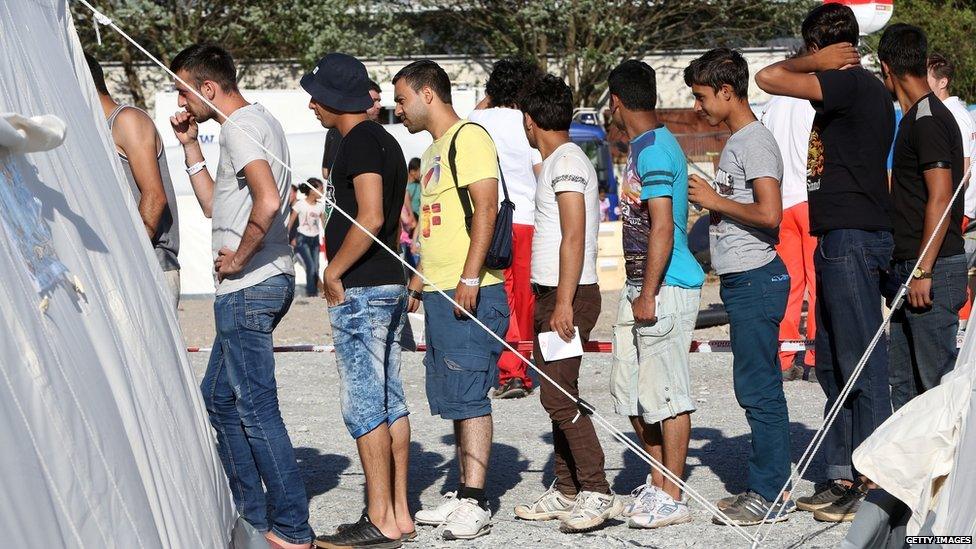
A tented camp for refugees in Dresden. Space in migrant hostels is running out because of the influx
- Published4 August 2015
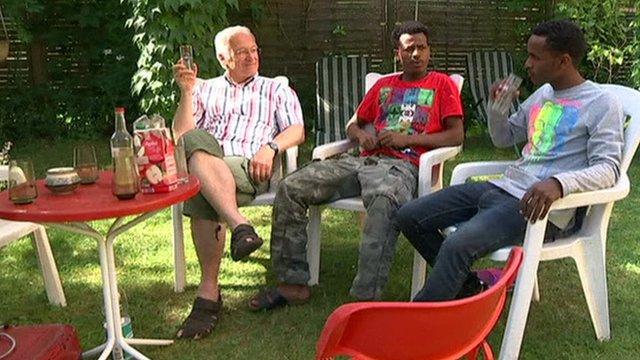
- Published30 July 2015
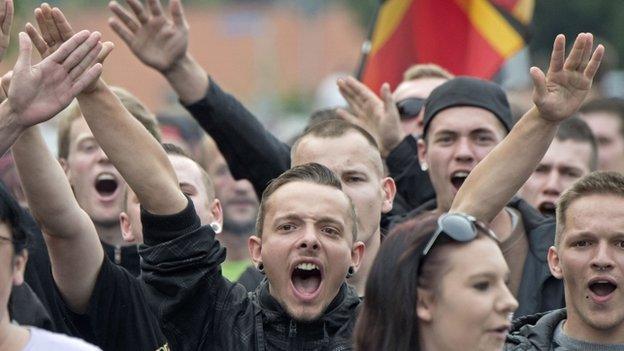
- Published28 July 2015
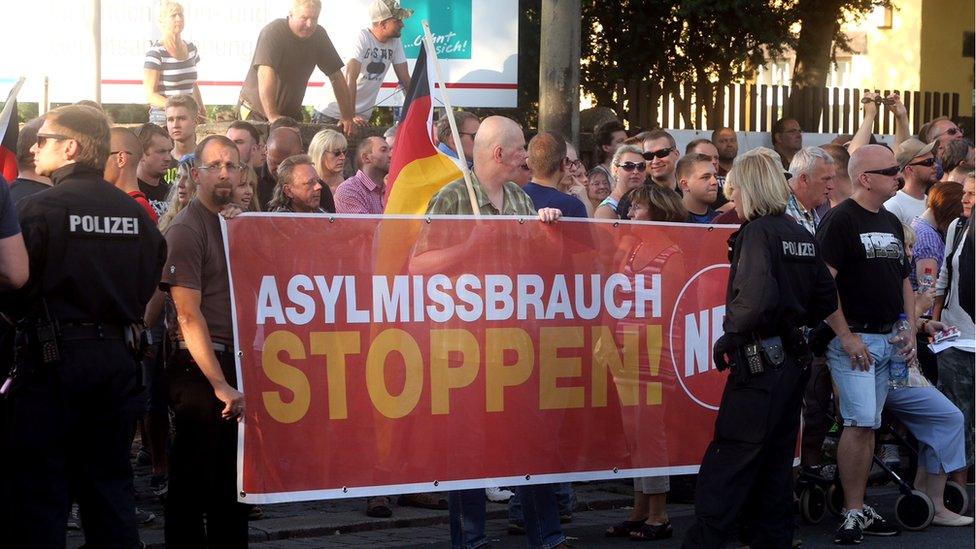
- Published10 July 2015
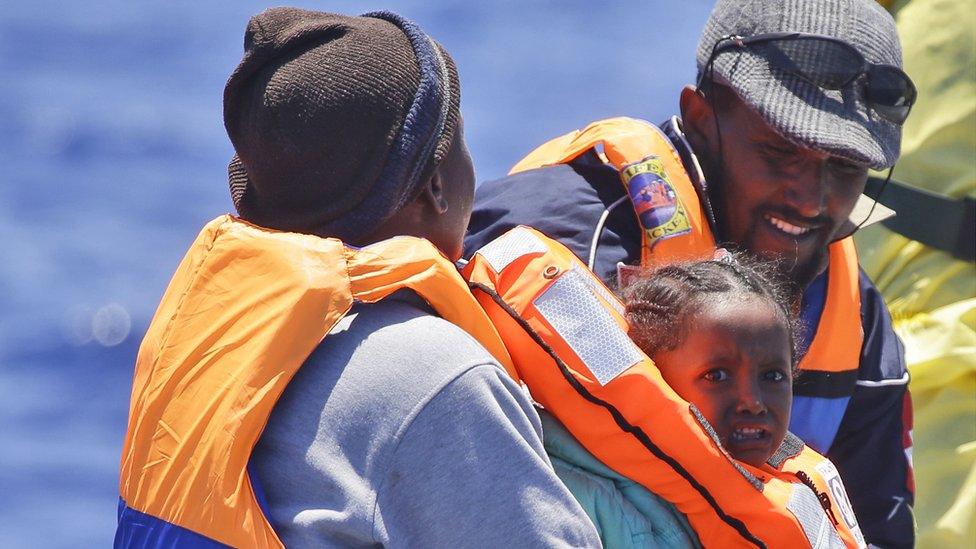
- Published3 March 2016
